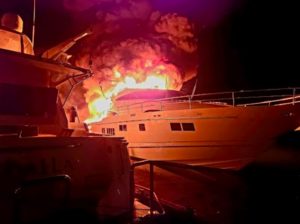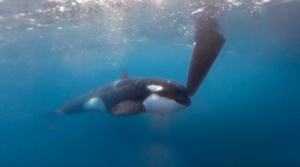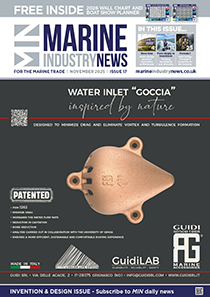In Focus: Calls for legislation on overboard discharge
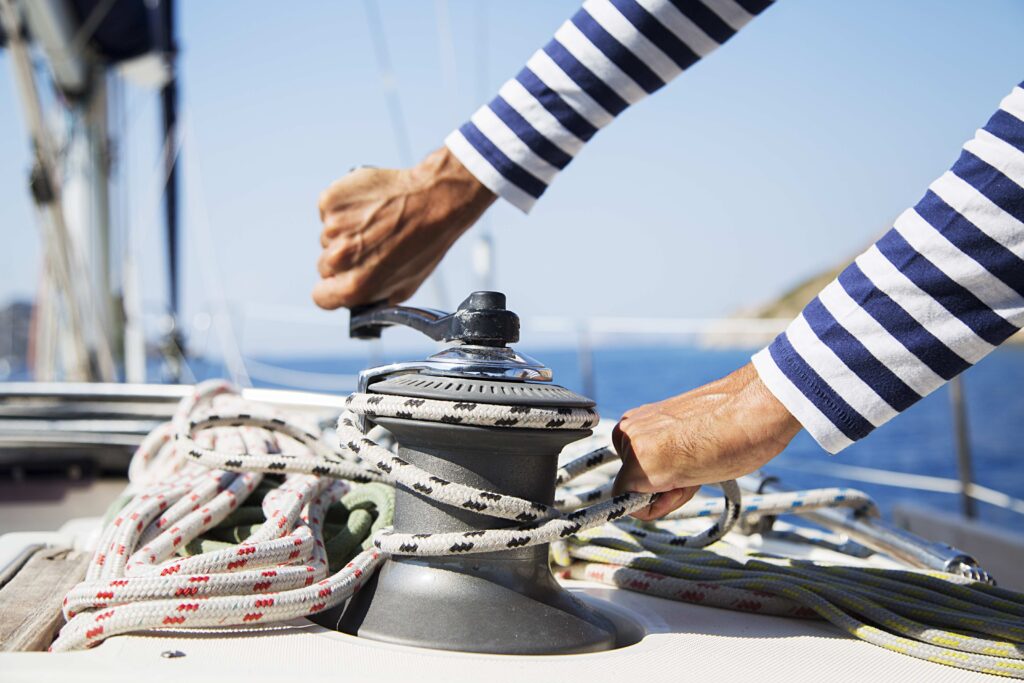
In an environment of increased awareness and consumers enthusiasm to tackle pollution, Wave International’s Paul Gullett is calling for legislation for the unregulated marine leisure sector about overboard discharge, especially with grey water.
He says one of the biggest challenges the oceans are facing is that the speed of legislation doesn’t match the speed of the pollution. Boat owners are often inadvertently pumping tiny particles into the sea on a daily basis.
Gullett wants to see environmental protection systems built into all types of vessels, not just the large commercial ones.
“Consider,” he says, “all ocean water is polluted with microplastics and microfibres.” This was recently highlighted by reports from the Ocean Race, which found microplastics in every single water sample from around the globe.
“If every boat had a bilge water filter as a minimum, every boat would be putting cleaner water back into the seas and waterways. It’s a ‘no-brainer’. Install the tech on all vessels with a bilge.”
This desire to protect the environment isn’t new to him, he’s been focused on water filtration since the 1990s when he was working in the oil industry. This was well before there was any widespread knowledge or interest in water pollution, and few even considered the implications of plastics in the oceans and even fewer had heard of microplastics and microfibres.
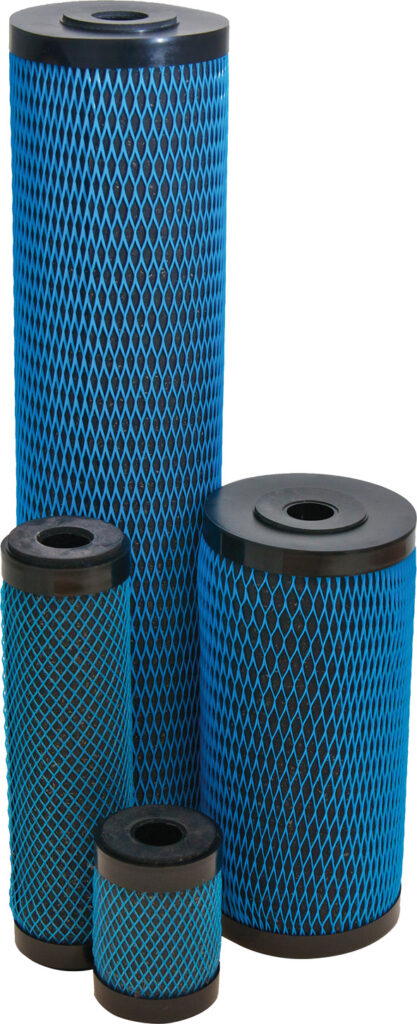
In 1999, concerned about the short, medium and long term implications of pollution Gullett set up Wave International followed by AFL in 2009, which is a UK-based manufacturer of filters for all types of industrial and commercial applications. (AFL has since grown to become a world leader in filters and offers Wave International unrivalled access to the latest filter technology).
“This was completely new, innovative, environmental technology – most people didn’t even understand the issue, let alone have any awareness of it,” Gullett says. “I was told, and thought, that bringing new technology to the market would take about five years to gain traction, but it was very hard to generate a market for this new environmental-protection product.
“It’s been a long and is still on-going process,” says Gullett. “We started when there wasn’t any publicity or interest at all about water pollution. Especially the extremely tiny particles such as microplastics and microfibres which are invisible to the eye. We used examples of pollution that people could see, such as oily blue-sheen on water from oil or diesel spills, to demonstrate what pollution boaters can cause, and worked with environment bodies such as The Green Blue and The Boat Safety Scheme, owned jointly by the Canal and River Trust and the Environment Agency, to help raise awareness.
“What used to really irk me was the response from industry asking what the Return on Investment was.
How do you measure ROI on the environmental impact of overboard pollution?
“I’m getting less irked now as boatbuilders and boat owners are becoming much more environmentally conscious. But we still get responses such as ‘we don’t have dirty bilges’. Well, you might not have obvious fuel or oil spills, but I can guarantee you’ll be pushing microfibres and microplastics overboard unless you have a bilge filter installed.”
Gullett is critical of the lack of legislation to protect the oceans. Although The Boat Safety Scheme checks that a vessel has a control of bilge pump discharge such as a bilge filter (as part of its BSS certification), it’s only relevant for inland boats.
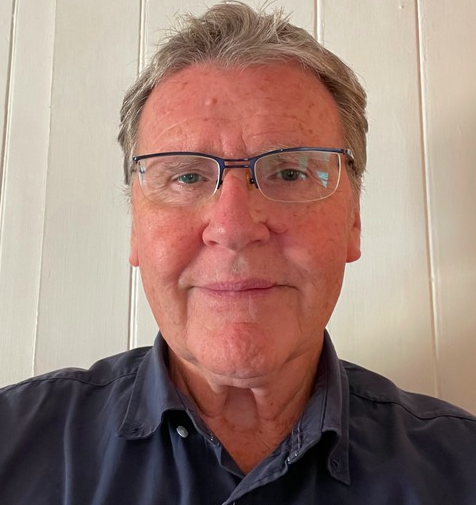
“There is very little being done in the non-regulated leisure marine arena. There is currently no enforceable legislation to prevent leisure boats from discharging polluted, oily or contaminated water either from their bilge or via their grey water systems. Yes it’s hugely frowned upon, especially in marinas for example, and generally boaters are careful there, where they are observed, but once out a sea, the pollution isn’t so visible, but it’s still happening.
“It can be frustrating – boaters believe they are helping the environment using eco-friendly washing up liquids, soaps, shampoos etc, but that doesn’t stop all the other pollutants, such as sun tan creams, hair products, makeup, and even the tiny microfibres from plastics within your clothes, from ropes on boats, or scraps of paint, traces of engine oil etc which comes from bilge water and grey water discharge.”
There’s currently a huge opportunity, says Gullett, in the increased interest and concern about the environment. He says that boat owners and water users, those on charter holidays, and providing boat share schemes are actively promoting awareness about for example, using eco-friendly detergents, soaps, and shampoos.
“This is a good start, but there is a huge opportunity in increasing the awareness of microfibre and microplastic pollution.”
Gullett’s not shy about promoting his products as he says they’re part of the answer to the micro-pollution problem. He cites examples like Wavestream’s bilge water filter with its filter-medias which extract hydrocarbons, heavy metals, toxins, oil and fuel, microfibres and microplastics. Products like these are affordable, easy to use and to install. For grey water, the Wavebrite SMART is an example which he says works for the planet and for the business.
“Wavebrite SMART comprises five stages of filtration contained within a single unit, so it can be easily installed as a compact, single unit. It has a separate digital display which gives detailed information – for example on the amount of water being discharged overboard, the flow rate, and also the amount of pollutants being extracted and when the filters need changing.”
The company’s worked with a number of OEMs and some leading naval architects to ensure the size, shape and design of the Wavebrite SMART meets their needs and, says Gullett, “some of the world’s leading boatbuilders are getting Wave products integrated within the build process.”
But it’s not just new builds which are employing this system. Gullett acknowledges that people are now retrofitting many of his systems onboard. He says this is vitally important as “if anyone is planning to cruise to sensitive sea areas, they might be surprised to find they are breaking the local laws for bilge water discharge quality which could be a low 5ppm. That equates to just five milligrams of oil in a litre of water.
“The innovation is here already,” he says. The Wavebrite SMART grey water filter, which has been shortlisted for several awards, takes emissions down to 5ppm and is completely self-contained, in a sound-proofed, robust box.
The technology for this was available in 2011 but it’s taken until now to combine it with an intelligent monitor and display, which shows you how environmentally conscious you really are.”
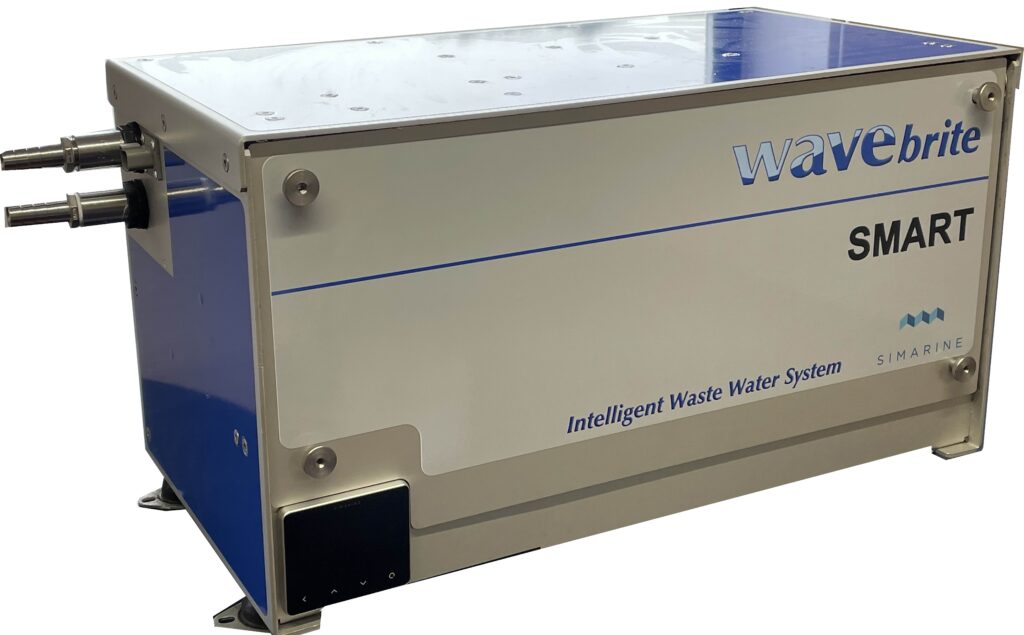
“We’ve built this unit to suit the demands of OEMs who have been asking for a simple easy to fit, ‘plug and play’ grey water unit which avoids them having to build in grey water holding tanks. This creates more space within the hull and reduces weight. The Wavebrite SMART not only shows your water use, but also what the filters are collecting and therefore what you are not discharging overboard.
“Getting the Wavebrite SMART to market was key.”
That said, Gullett believes that “the realisation that the Wavestream filters can also be used as an emergency portable solution marks a jump in our technology. By connecting the Wavestream bilge filters into a floating skimmer head (a bit like a vacuum cleaner) this device can be manoeuvred easily into any location where there is pollution from a light oil spill, for example. Being marketed now as the Wavecleaner, it can be used at marinas, on the riverside, waterside factories/boat yards etc. Anywhere that pollution could enter the waterways or sea.”
Now Gullett’s looking to increase the company’s presence in the commercial and superyacht markets. It took nine years to become a preferred supplier for a major oil water separator company – for ocean going liners and ships – where the system is used within the oil water removal system in order to get discharges down to the very low 5 ppm levels. Wave International now supplies them all around the world as a standard fit.
In the meantime he’ll keep advocating for a standard fit for legislation to protect the sea from leisure marine users as well as commercial vessels.

